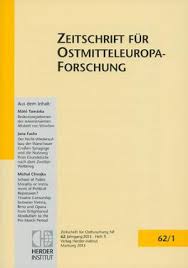Das Baltische Privatrecht von 1864/65 – Triumphbogen oder Grabmal für das römische Recht im Baltikum?
The Baltic Private Law of 1864/65 – Triumphal Arch or Gravestone of Roman Law in the Baltic States?
Author(s): Marju Luts-SootakSubject(s): History of Law, Civil Law, 19th Century
Published by: Verlag Herder-Institut
Keywords: Baltic Private Law; 1864/65; Triumphal Arch; Gravestone of Roman Law in the Baltic States;
Summary/Abstract: In the 19th century, Tsar Alexander I, and his successor, Nikolai, planned to codify the laws of the Russian Empire and the provinces. They wanted only to fix and systematize the law currently in force. Thus a draft of Baltic Private Law (BPR), emphasizing the diversity of local laws, was confirmed by Tsar Alexander II and came into force on the 1st July, 1865 as the “Provincial Law of the Baltic Governments, 3rd Part, Private Law: Private Law of Livonia, Estonia and Courland.” The BPR was written in German and translated into Russian, the Russian translation, oddly, having priority. The impact of the BPR is highly controversial, as some authors see it as the triumph of the Roman Law, whereas others recognize the victory of German jurisprudence. The greatest number of references are to Roman and Baltic local laws (with a few to Canon, Russian and Swedish Law). But Friedrich Georg von Bunge, the redactor of the BPR, tried to push back the influence of Roman Law. The Ius commune continued in existence only in academic lectures and scholarly literature, whereas this cannot be said for the Baltic law practice, as there are no research findings until today. Despite having been drafted in the so-called modern period of European legislation, the BPR has a pre-modern, class-dependent character.
Journal: Zeitschrift für Ostmitteleuropa-Forschung
- Issue Year: 58/2009
- Issue No: 3
- Page Range: 357-379
- Page Count: 23
- Language: German

